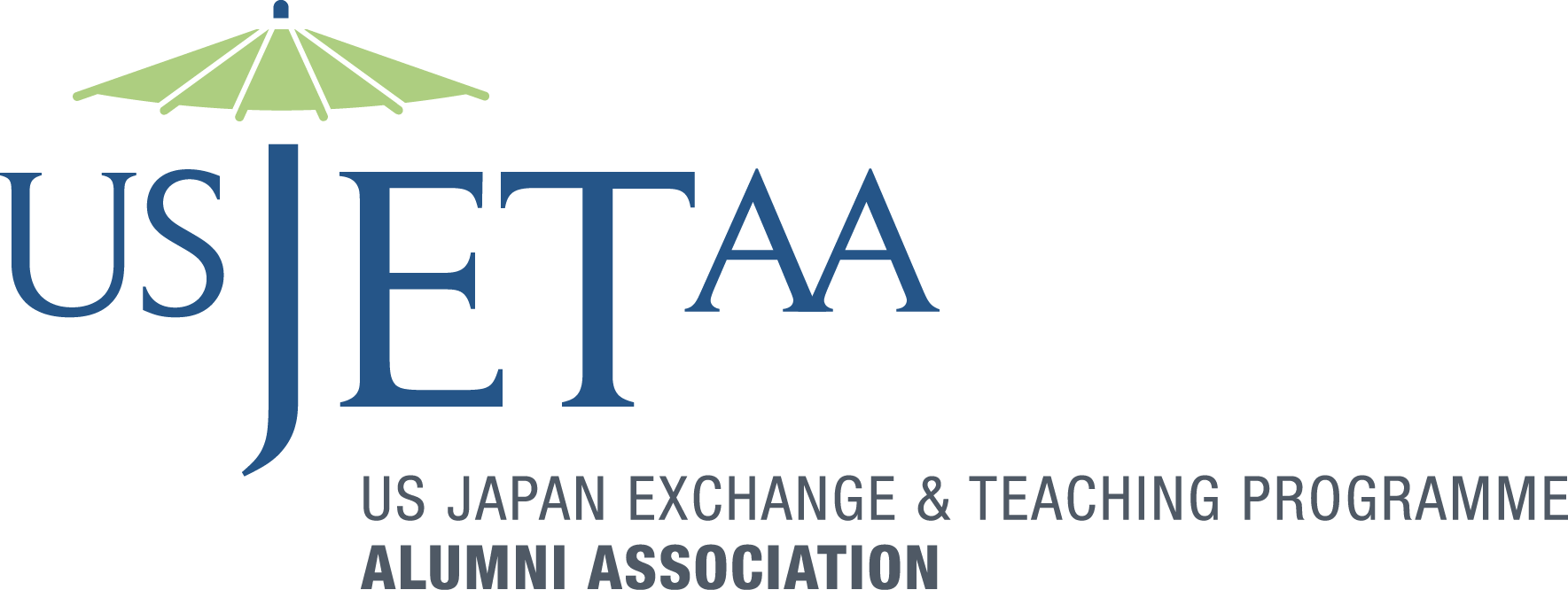In a case of what the Japanese might call ishin denshin (heart-to-heart telepathy), Kasia Lynch and I had the same idea at almost the same time: we should make presentations at schools throughout Michigan to promote the study of Japanese language and culture. Our sub-agendas were different, but complementary. A longtime teacher of Japanese for grades K-16, I wanted to raise awareness of the Hinoki Foundation’s annual Japanese-English bilingual quiz game event for middle school students. Kasia, an entrepreneur promoting links between one’s ikigai (passion/avocation) and the pressing need for Japanese-English bilingual/bicultural workers, wanted to increase visibility of her new company, Ikigai Connections, particularly among high schoolers and college students. Thus was born the “Hinoki Cup Roadshow and Japanese Jobs 101,” a collaborative effort that proved more successful than either of us anticipated, and became an unforgettable highlight of both our careers.
Working with Minae Sawai, Michigan’s Grassroots Network Exchange Japan (GEN-J) Cultural Exchange Facilitator, we developed a presentation highlighting the benefits of bilingual/bicultural skills, and obtained a Japan Foundation grant to help defray some of our mileage costs. Starting with Japanese Teachers’ Association of Michigan members, we identified potential audiences, and began making classroom visits in October 2019. To demonstrate the fun of using bilingual skills, we had the middle and high school students try out the Hinoki Cup quiz game, with Japanese candy and other prizes for participating. To students at all levels, we presented information about the many Japanese companies in Michigan, the variety of careers in which bilingual/bicultural skills (of various levels) can be helpful, and the many benefits of studying Japanese.
Sharing stories of our career journeys was perhaps the most powerful aspect of each Roadshow visit. Kasia, Minae, and I explained how our experiences as exchange students were life-changing, leading us to other experiences, such as attending graduate school in Japan on a MEXT scholarship and doing freelance translation in Europe; working at Disney’s Epcot Japan Pavilion in Florida and then for an NGO in Cambodia; and teaching English on the Japan Exchange & Teaching Program in Shiga prefecture and later becoming a Japanese teacher, professor, and consultant. The higher the students’ level of Japanese, the more Japanese language we would use in our presentation.
Soon, our collaborative project was getting noticed in the local Japanese-language newspaper and on social media in both languages. In a few short weeks, our initial three months were completely booked. We began adding dates — and more presenters. The three original presenters were soon joined by seven other bilingual professionals — translators, interpreters, educators, entrepreneurs, and government officials — all volunteering their time to spread the message of how important international exchange and language study were in their careers and lives. At one college visit, every single participant stayed after to ask questions of presenters individually. When the COVID-19 quarantine made classroom visits impossible, presenters “visited” the final two schools via videoconference.
The Hinoki Cup, held in early March 2020 was our biggest ever (40 students from 15 schools), and feedback about the Roadshow was overwhelmingly positive. Participants reported they felt more informed about career possibilities, more motivated to continue their studies, and hoped we would return soon to their classrooms. Time will tell what impact our Roadshow may have had on Japanese class enrollments and awareness about bilingual/bicultural employment opportunities, but we certainly relished this opportunity to share as “senpai” (predecessors/senior colleagues) what we hope will be helpful to our “kouhai” (junior colleagues) in their study of a language and culture we love.
Anne M. Hooghart, Ph.D., was a JET in Shiga prefecture (1989-1990), and works in the cultural/public relations section of the Consulate General of Japan in Detroit.
This article is part of a guest-contributor partnership between the East-West Center in Washington and the United States Japan Exchange & Teaching Programme Alumni Association (USJETAA) in which former JET participants contribute articles relating to their experiences in Japan.
The USJETAA is a 501(c)(3) nonprofit educational and cultural organization that promotes grassroots friendship and understanding between the United States and Japan through the personal and professional experiences of over 30,000 Americans who have participated on the JET Programme since its inception in 1987. USJETAA serves as a resource for individual JET alumni, JETAA chapters nationwide, and potential JET participants; supports the leadership of JETAA chapters with programming, membership recruitment, chapter management, leadership, professional development, and fundraising; and, supports the JET Program(me) and engages with the U.S.-Japan community.
